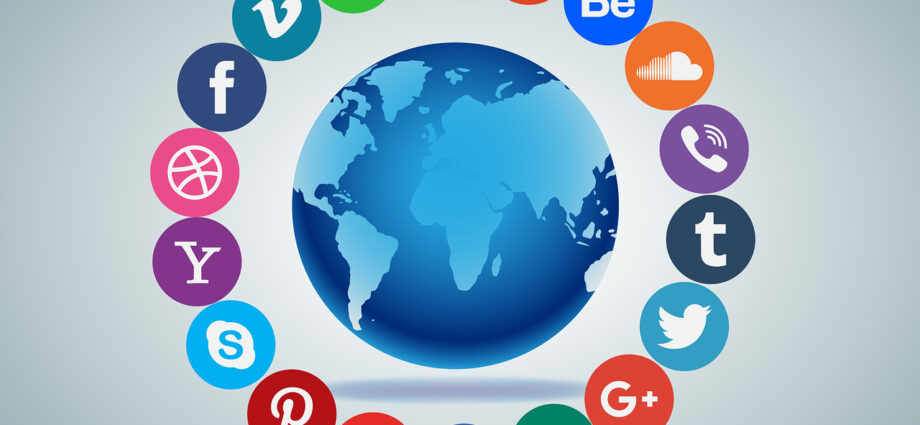1. Introduction
In today’s interconnected world, social media has become an integral part of our lives. It has revolutionized the way we communicate, share information, and interact with others. This article explores the impact of social media on our lives, examining both its positive and negative effects.
2. Definition of Social Media
Social media refers to online platforms and websites that allow users to create and share content, engage in social networking, and participate in virtual communities. Examples of popular social media platforms include Facebook, Twitter, Instagram, and LinkedIn.
3. Social Media Usage Statistics
Before delving into the effects of social media, it is important to understand its scale and reach. According to recent statistics, billions of people around the world use social media platforms on a daily basis. These platforms have become a significant part of our daily routines, shaping our interactions and influencing our behaviors.
4. Positive Effects of Social Media
Social media has brought numerous positive changes to our lives. It has transformed the way we connect with others, share information, and build communities. Some of the key positive effects include:
Connectivity and Communication
Social media has made it easier than ever to stay connected with friends, family, and acquaintances. It allows us to bridge geographical barriers and maintain relationships across distances. Through social media, we can communicate instantaneously, share updates, and engage in real-time conversations.
Sharing Information and Ideas
Social media platforms serve as powerful tools for sharing information and ideas. They provide a platform for individuals to express their thoughts, creativity, and opinions. Users can share articles, videos, and photos, enabling the dissemination of knowledge and fostering intellectual discussions.
Building Communities and Support Networks
Social media has facilitated the creation of online communities and support networks. It allows individuals with shared interests or experiences to connect and form meaningful relationships. These communities offer support, encouragement, and a sense of belonging to individuals who may feel isolated in their offline lives.
5. Negative Effects of Social Media
While social media has its merits, it also has negative consequences that can impact our lives. It is essential to be aware of these effects and navigate social media usage mindfully. Some of the negative effects include:
Impact on Mental Health
Excessive use of social media has been linked to mental health issues such as anxiety, depression, and low self-esteem. The constant exposure to carefully curated, idealized representations of others’ lives can lead to feelings of inadequacy and comparison. Additionally, cyberbullying and online harassment can have severe psychological consequences.
Privacy Concerns
Social media platforms collect and store vast amounts of personal data, raising concerns about privacy and security. Users must navigate complex privacy settings and be cautious about sharing sensitive information. Data breaches and unauthorized access to personal information are potential risks associated with social media usage.
Cyberbullying and Online Harassment
The anonymity provided by social media platforms can lead to instances of cyberbullying and online harassment. Individuals may face derogatory comments, threats, or the spreading of false information. Such experiences can have a significant impact on one’s mental and emotional well-being.
6. Influence on Relationships
Social media has altered the dynamics of relationships. While it enables us to maintain connections, it can also affect the quality and authenticity of our relationships. Over-reliance on social media for communication can hinder face-to-face interactions, leading to a sense of disconnection and shallow relationships.
7. Impact on Self-Image and Self-Esteem
The prevalence of carefully curated images and lifestyles on social media platforms can influence individuals’ self-perception. Constant exposure to idealized representations can lead to unrealistic expectations and a negative impact on self-esteem. It is crucial to promote self-acceptance and authenticity in a world dominated by social media influence.
8. Social Media Addiction
The addictive nature of social media poses a significant concern. The constant need for validation through likes, comments, and followers can create a dependency on social media platforms. Excessive use can lead to neglect of real-life responsibilities and hinder productivity.
9. Social Media and Politics
Social media has become a powerful tool for political discourse and mobilization. It allows individuals to voice their opinions, organize movements, and share information about social and political issues. However, the spread of misinformation and echo chambers can also contribute to polarization and the amplification of extreme viewpoints.
10. Social Media and Business
Businesses have recognized the potential of social media as a marketing tool. Social media platforms provide a cost-effective way to reach a large audience, engage with customers, and promote products and services. The ability to target specific demographics and measure the effectiveness of marketing campaigns makes social media a valuable asset for businesses.
11. Social Media and News
Social media has transformed the way we consume news. It has become a primary source of information for many individuals, allowing them to access news stories and updates in real-time. However, the rise of fake news and the lack of editorial control pose challenges in distinguishing reliable information from misinformation.
12. Balancing Social Media Use
To mitigate the negative effects of social media, it is crucial to find a balance in its usage. Setting limits, practicing digital detoxes, and prioritizing real-life interactions can help maintain a healthy relationship with social media. Being mindful of privacy settings, critical of information sources, and practicing responsible digital citizenship are essential for navigating the social media landscape.
13. Conclusion
Social media has undeniably reshaped our lives, offering both positive and negative impacts. It has connected people across the globe, provided platforms for self-expression, and facilitated the exchange of ideas. However, it also raises concerns about privacy, mental health, and the authenticity of relationships. By understanding the effects of social media and using it responsibly, we can harness its benefits while mitigating its potential drawbacks.











